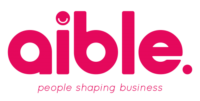Following the explosion of legal highs on the UK market, employers have to ensure their workers are aware that the use of any psychoactive drugs in the workplace is not appropriate.
With two more legal highs being identified every week, the European Monitoring Centre are monitoring nearly 500 synthetic chemical drugs that have the same effect as illegal substances such as cannabis and ecstasy.
Britain has been dubbed the drug capital of Europe and the use of legal highs claimed the lives of more than 100 people between 2014 and 2015.
Although hundreds of substances, such as Mephedrone (Meow Meow), BZP and GBL, have already been outlawed due to their harmful effects, other so-called legal highs, like Spice, Clockwork Orange, Bliss and Mary Jane, are not controlled under the Misuse of Drug Act 1971. Legislation is currently going through Parliament to make all psychoactive substances illegal. The Psychoactive Active Substances Act 2016 is due to come into law soon and will even prohibit the use of poppers and laughing gas.
As psychoactive drugs cause temporary changes in perception, mood, consciousness and behaviour, it is important that employers make their staff aware that the use of legal highs in the workplace is included in their drug and alcohol policy.
Staff using any kind of drug at work can prove to be damaging to a business’ reputation, as a worker who is feeling uninhibited as the result of taking a stimulant psychoactive drug is more likely to behave inappropriately and unprofessionally. Similarly, legal drugs that imitate more depressant affects akin to cannabis use are likely to affect workplace productivity, as users are likely to lack concentration, feel lethargic and may even feel an attack of the munchies! And I don’t even need to go into why taking a hallucinogen drug would be a problem at work, especially if it causes a worker to become paranoid and anxious. In short, a user of a legal high is not only a potential danger to him or herself, but also to their colleagues and clients.
Employers have a duty of care to their staff and should therefore ensure that they educate their workforce on what constitutes a legal high and why they shouldn’t be consumed at work. Similarly, it is important to ensure that your stance is in line with how you decided to tackle any drug or alcohol misuse: do you provide support if you view addiction as an illness? Or do you have a zero tolerance policy if it concerns a safety critical role?
For more information on legal highs and other workplace issues please contact me on 01656 630 010 or drop me an email on ami@aible.co.uk.

